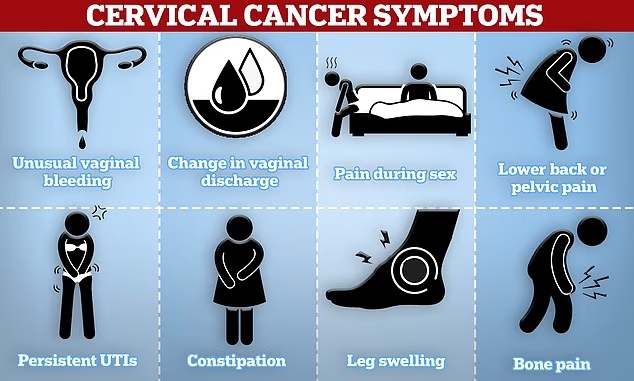Featured Post
- Get link
- X
- Other Apps
A "Painless" Test That Could Save Your Life: Why You Need a Cervical Screening
Understanding Cervical Cancer: The Importance of Regular Screening
Cervical cancer remains a significant health concern for women worldwide, and its prevention relies heavily on early detection through regular screening. Despite the availability of effective screening methods and vaccines, many women are still hesitant to undergo these tests due to fear and misinformation. One poignant story highlights the life-altering consequences of delaying cervical screenings and the valuable lessons learned from such experiences.
The Impact of Delayed Screening
Jasmin McKee, a 26-year-old from Southampton, serves as a critical example of the importance of cervical screenings. After experiencing symptoms like lower back pain and bleeding after sex, she initially attributed these issues to her newly fitted contraceptive coil. However, she postponed her cervical screening due to fears fueled by alarming online narratives about the procedure's pain and discomfort.
After finally attending her screening in March 2024, McKee was devastated to learn that she had the human papillomavirus (HPV), a virus responsible for nearly all cases of cervical cancer. Unfortunately, by the time of her diagnosis, her cancer had progressed to stage three, which significantly diminished her chances of survival. McKee's story is a stark reminder of the consequences that can arise from delaying essential health screenings.
The Importance of Regular Cervical Screenings
Cervical screenings, commonly known as smear tests, are crucial in detecting abnormal cell changes in the cervix before they develop into cancer. In the UK, the NHS has recently announced a change in the frequency of screenings for low-risk women aged 25 to 49, moving from every three years to every five years. This decision is based on evidence indicating that five-year intervals are just as effective in identifying cervical cancer.
The NHS emphasizes that while these changes may seem concerning, they are grounded in thorough scientific research and expert recommendations. Women who test positive for HPV will still receive closer monitoring and additional tests, ensuring that those at risk are adequately cared for.
Symptoms and Risk Factors
Recognizing the symptoms of cervical cancer is vital. Women should be aware of any unusual changes, including:
- Bleeding after sex
- Bleeding between periods
- Pelvic or lower back pain
- Changes in vaginal discharge
These symptoms can often be mistaken for other health issues, which is why regular screenings are essential for early detection. The more proactive women are about their health, the better their chances of catching potential issues before they escalate.
Overcoming Fear and Misinformation
Fear of discomfort or pain often discourages women from seeking cervical screenings. However, McKee’s experience shows that the procedure is typically quick and straightforward. She described her own screening as "painless" and urged others not to let fear dictate their health choices. The medical professionals conducting these screenings are experienced and aim to make the process as comfortable as possible.
It is crucial for women to seek reliable information from trusted medical sources rather than relying on anecdotal stories from the internet. Understanding the facts about cervical cancer and the importance of screenings can empower women to take charge of their health.
The Role of Vaccination
In addition to regular screenings, vaccination against HPV is a vital preventive measure. The HPV vaccine significantly reduces the risk of developing cervical cancer and has contributed to a 54% drop in the cervical cancer death rate in the UK over the past 25 years. Initiatives to increase vaccination rates among teenagers are essential in the effort to eliminate cervical cancer entirely by 2040.
Moving Forward
Jasmin McKee’s journey underscores the importance of regular cervical screenings and the need for open conversations about women's health. By sharing her story, she hopes to encourage others to prioritize their health and seek necessary screenings without delay.
As we move forward, it is essential to continue raising awareness about cervical cancer, its symptoms, and the importance of early detection through screenings and vaccinations. Women should feel empowered to take control of their health and make informed decisions based on reliable information.
Conclusion
Cervical cancer is a preventable disease, and regular screenings are a key component in the fight against it. By prioritizing these tests and seeking out accurate information, women can significantly reduce their risk and ensure that they remain healthy and vibrant.
- Get link
- X
- Other Apps
Subscribe Us
Popular Posts
100 WOMEN REVEAL WHAT ACTUALLY MAKES A GUY GOOD IN BED
- Get link
- X
- Other Apps
EXPERTS REVEAL THE SAFEST COUNTRIES TO BE IN IF WORLD WAR 3 BREAKS OUT
- Get link
- X
- Other Apps
Why did Mia Khalifa and her husband break up?
- Get link
- X
- Other Apps
STOP! Your Nails Are Trying To Tell You This Secret About Your Health!
- Get link
- X
- Other Apps
Beyond the Gaze: Unpacking "Why Do Women Show Cleavage?"
- Get link
- X
- Other Apps
If Your Wife Has Sex With Another Man, She'll Ask You This One Question
- Get link
- X
- Other Apps
If you see someone with bulging veins, you must tell them these things
- Get link
- X
- Other Apps
The reasons why public toilet doors don't touch the ground.
- Get link
- X
- Other Apps
The Unanticipated Consequences: A Tale of a Georgia Man and a Chiropractor
- Get link
- X
- Other Apps















Comments
Post a Comment